The British monarchy is arguably one of the oldest and most renowned institutions in the world that continues to attract global attention with its lasting influence, rich history, and cultural significance. Serving as a pillar of the United Kingdom’s identity, the British monarchy continues to blend centuries-old traditions with modern significance, evolving into a constitutional monarchy that stands as a symbol of stability and continuity. The monarchy is a powerful symbol of national pride and unity, whose presence is felt far and wide, whether through global media coverage, charitable endeavors, or state functions. From public appearances to royal ceremonies, the monarchy plays a crucial role in shaping the UK’s cultural landscape, connecting the past while representing the future.
Historical influence
The British monarchy has a long and storied history, with roots that date back to the 9th century. The current Royal Family, under the rule of King Charles, can trace its lineage back to King George V, who was crowned in 1910. During the Middle Ages, the monarchy served as a powerful political force, with the king or queen having significant power and authority over the kingdom. The Tudor dynasty, which comprised Elizabeth I and Henry VIII, saw the monarch realize the peak of its power as it ruled over a vast empire.
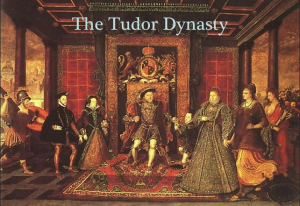
The British monarchy’s rich history directly intertwines with the cultural evolution of the United Kingdom, signifying the active role it has played in shaping the nation’s identity over centuries. From the start of the Roman conquest in 43 AD to the waves of Anglo-Saxon invasions, the monarchy has played an integral role in outlining British governance, cultural norms, and religious practices. The monarchy also played a pivotal role in the development of national traditions and ceremonies, such as the coronation, which reinforced a sense of national identity and continuity.
1. The Roman conquest
The Roman conquest of Britain in 43 AD served as a revolutionary period that had a significant impact on UK culture. The event saw the introduction of a complex legal system by the Romans that would influence the development of British law while facilitating the rise of Roman towns, such as Londinium, which would later become centers of trade, governance, and culture. Similarly, the conquest resulted in the construction of Roman roads, an initiative that transformed transportation and communication across Britain, facilitating trade and cultural exchange. The Roman impact also extended to religion, language, and daily life. Latin, the language of the Romans, would influence the development of the English language, whereas Roman customs and religious practices were also integrated into local traditions.
2. The medieval period
The medieval period is considered a time of profound cultural transformation in the UK, with the monarchy playing a huge role in shaping British culture. For instance, monarchs such as Henry VIII and Elizabeth I played key roles in shaping the UK’s culture through their support of literature, architecture, and the arts.
Henry VIII’s reign saw the establishment of the Church of England, an act that would later influence the region of the people, as well as new forms of art and architecture. Also, facilitating the dissolution of monasteries resulted in the redistribution of wealth, promoting the construction of grand palaces and the commissioning of artworks.
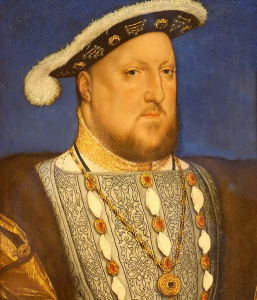
Henry VIII
Similarly, under Elizabeth I’s rule, literature thrived, with playwrights such as Christopher Marlowe and William Shakespeare creating works that would later become cornerstones of English literature. The era also saw a rise in the creation of prose, drama, and poetry that depicted the cultural ambitions of the time.
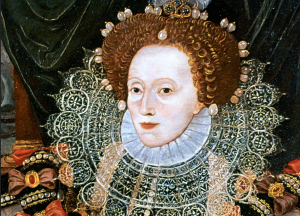
Elizabeth I
3. National traditions and ceremonies
The British monarchy has been instrumental in shaping national traditions and ceremonies, many of which have become key cultural symbols in the United Kingdom. For instance, the coronation ceremony is one of the most significant royal events that serves as a key example of how the monarchy intertwines with British culture. The event dates back to the medieval period, and not only serves as a political and religious event but also a cultural spectacle that exhibits the rich history and culture of the United Kingdom.
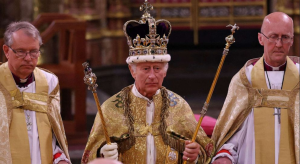
The Coronation of King Charles III
The intricate symbolism, regalia, and rituals included in the ceremony, such as the presentation of the Crown Jewels and the anointing of the monarch, have been carefully preserved and passed down through generations. In addition to the coronation, other royal ceremonies and traditions, such as Trooping the Colour, the State Opening of Parliament, and royal weddings, have become integral to British culture. These events are not only grand spectacles but also cultural expressions that bring the nation together.
Over time, the influence and role of the British monarchy have changed and evolved, depicting the social and political changes of the times. In the modern era, the role of the monarchy is more symbolic and ceremonial, as the King continues to act as the head of state and represent the nation at official events, but with limited political power. Today, the Royal Family is considered a symbol of national unity and pride, and they continue to perform various ceremonial duties and responsibilities.
Cultural Influence
The Royal Family continues to have a wide-reaching influence on English culture and society. Their status as public figures and their roles as symbols of national unity and pride offer them a unique platform to promote English culture and heritage. To date, the Royal Family is involved in various cultural events and initiatives, such as the Royal Opera, the Chelsea Flower Show, and the Edinburgh Festival.
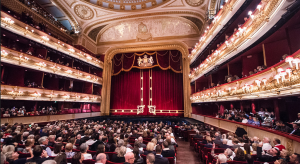
The Royal Opera
In addition to their involvement in cultural events, the Royal Family also influences the UK’s fashion and media. The style and fashion choices of members of the Royal Family are widely covered by the media and often set trends in the fashion industry. The Royal Family is also a popular subject for books, television shows, and movies, and their story has been told and retold in various forms over the years.
Despite the changing nature of the British monarchy over time, the Royal Family has performed an integral role in English culture. From serving as iconic symbols to being the grandeur of royal ceremonies, the Royal family has helped to shape the cultural identity of England and continues to be a significant presence in contemporary society.
References
GHL Solutions, (2022). The Monarchy, Good Cultural Model? LinkedIn. https://www.linkedin.com/pulse/monarchy-good-cultural-model-ghliaisons/
Mamchii, O. (2023). Why is the British Monarchy the Institution of Great Tradition? Best Diplomats. https://bestdiplomats.org/united-kingdom-monarchy/
Moris, A. (2024). UK Culture: Traditions, History & Life. Davidson Morris. https://www.davidsonmorris.com/uk-culture/
Yasmeen, S. (2024). What the British Monarchy Actually Does—And How Hard It Would Be To Abolish It. TIME. https://time.com/6213624/what-does-british-monarchy-do/
